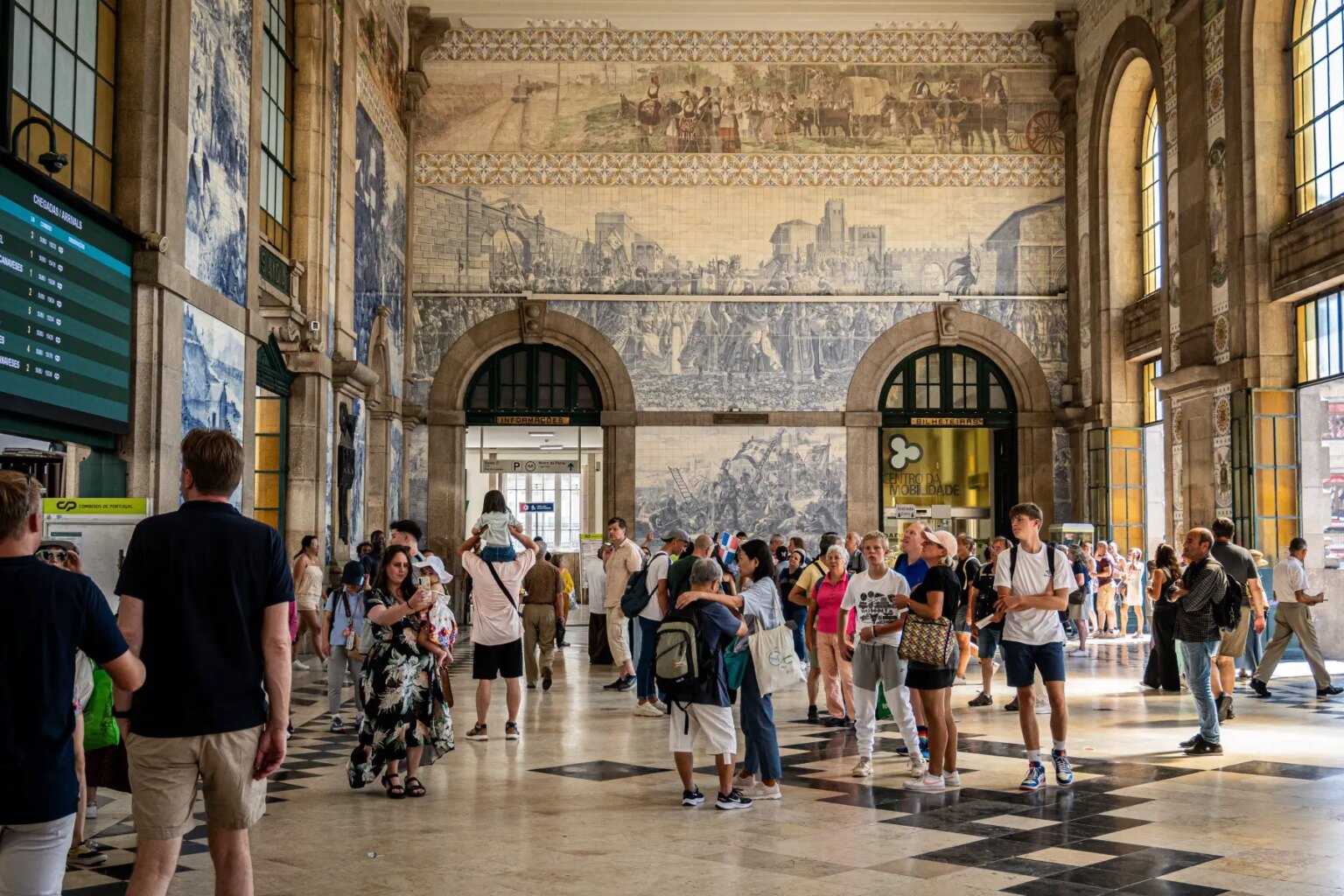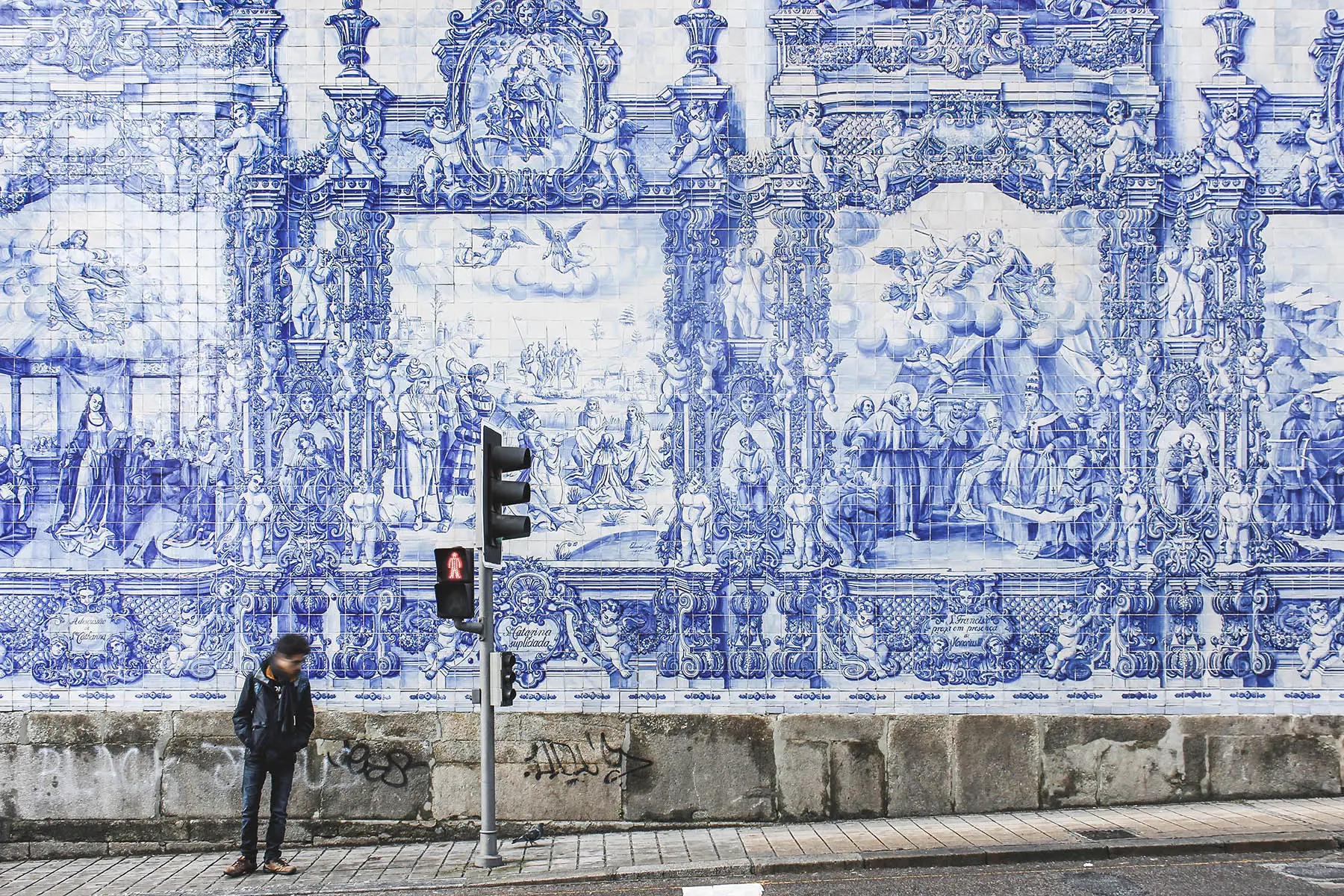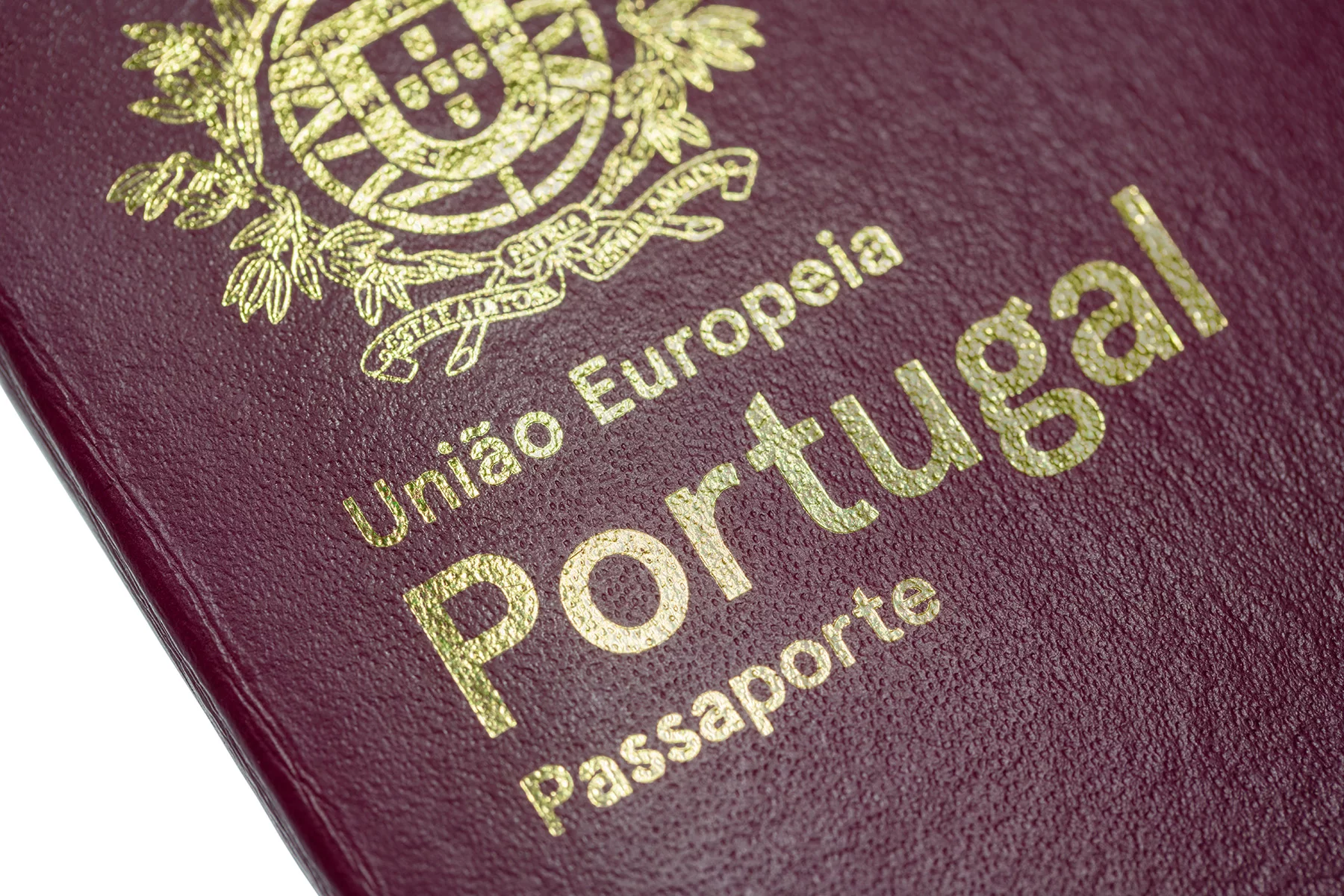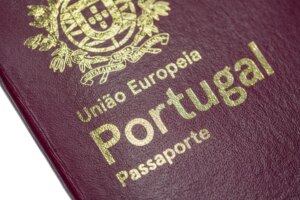Before moving to Portugal, you’ll need to know whether you must apply for a visa or residence permit to stay in the country. Immigration rules differ depending on your nationality, the purpose of your stay, and your intended length of time in the country.
Portugal offers many options for work, study, and investment visas, plus a unique Job Seeker visa, which makes the country one of the few places you can move to without a job lined up.
Here’s what you need to know about immigration in Portugal:
- Overview of immigration in Portugal
- Who needs a Portuguese visa?
- Types of Portuguese visas
- What is a Portuguese short-stay visa?
- What is a Temporary Stay visa in Portugal?
- What are Long Stay Portuguese visas?
- Asylum seekers and refugees in Portugal
- Residency and citizenship in Portugal
- Arriving in Portugal
- Portugal immigration: appeals and complaints
- Useful resources
moviinn
moviinn is your trusted partner for relocating to Portugal. With 2,400+ clients helped, they offer expert support for every stage of the journey – from choosing the right city to visa applications, tax advice, and more. Their all-in-one method makes moving abroad smooth and stress-free.
Overview of immigration in Portugal
With a warm climate, good food, and high-quality services, Portugal is a popular place for expats. In fact, just over 1 million of its residents (in Portuguese) are foreign-born, accounting for around 10% of the total population in 2024.
According to the Agency for Integration, Migration and Asylum (Agência para a Integração, Migrações e Asilo – AIMA), most expats (48.4%) come from Portuguese-speaking countries (PDF in Portuguese), namely Brazil, Cape Verde, Angola, and Guinea-Bissau. Other countries of origin include:
- Great Britain (4.5%)
- India (4.2%)
- Italy (3.5%)
- Nepal (2.9%)
- China (2.7%)
In 2023, 54,864 foreigners acquired Portuguese citizenship. Of those, 12,034 were living abroad.
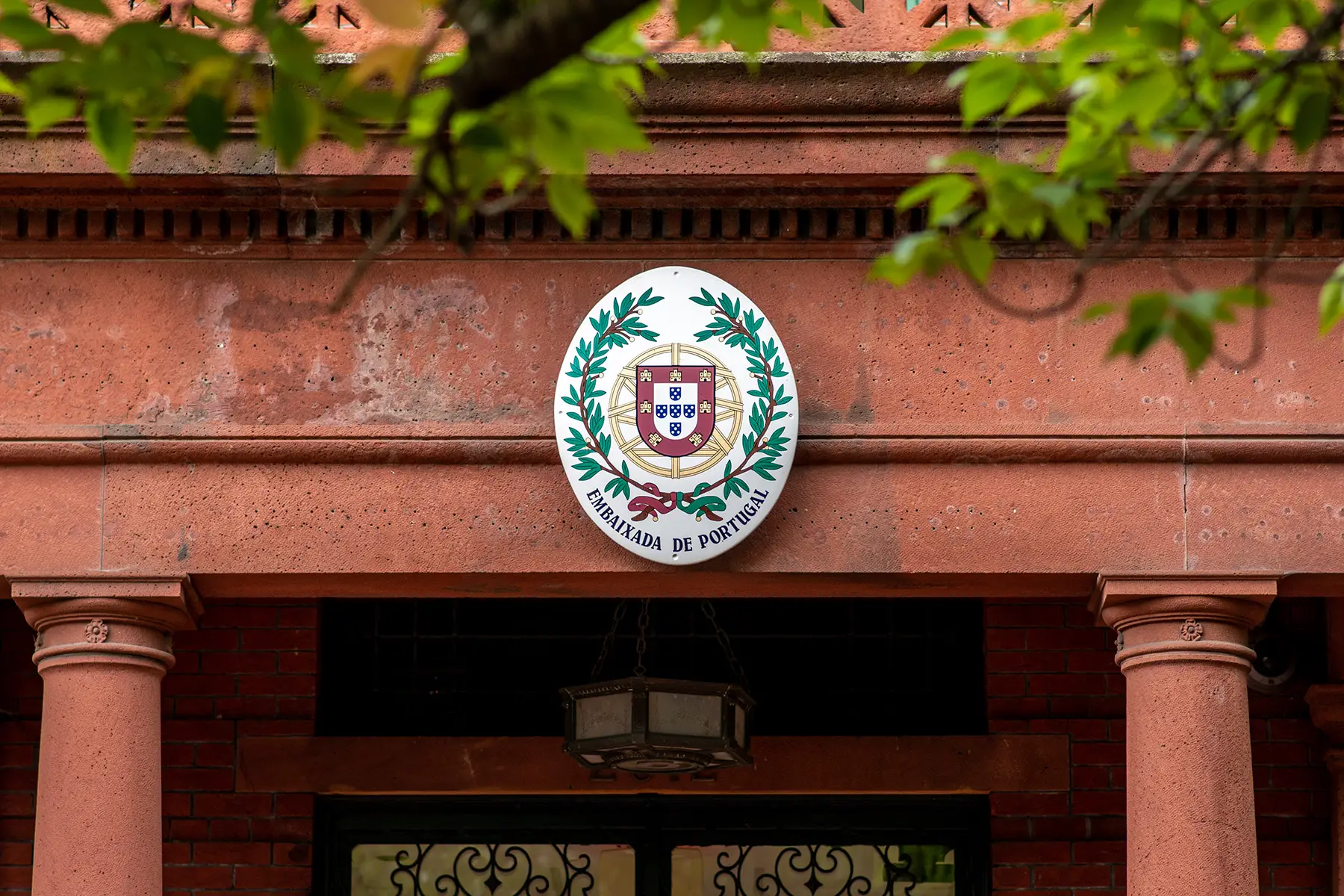
Portugal’s immigration system is similar to that of many other EU member states. EU citizens have freedom of movement due to the Schengen Area agreement. However, non-EU nationals can also move to Portugal to work, study, join family, or retire if they meet certain criteria.
According to the OECD Better Life Index, the country is safe, offers decent access to residency, and is environmentally friendly. However, it is lacking in other areas, such as income and civic engagement.
The AIMA is in charge of immigration in Portugal. This was formerly known as the Immigration and Borders Service (Serviço de Estrangeiros e Fronteiras – SEF).
Who needs a Portuguese visa?
Like many other EU countries, Portugal has a two-tier immigration and visa system. Rules depend on whether you are an EU/EFTA citizen or a third-country national.
EU/EFTA nationals
As it is an EU member state, Portugal grants visa-free entry to all EU/EFTA citizens, as well as certain family members and relatives even if they are not from the EU themselves. EU nationals can enter the country for three months to find a job or set up a business. Once hired, EU nationals have the same rights as Portuguese workers.
Portugal is part of the Schengen Area, which is made up of 27 European countries with no border controls between them. Citizens of Schengen countries can travel freely between one country and another without a passport. Additionally, they only need an identification document (ID card or passport) to enter Portugal.
While EU/EFTA citizens have the right to freely move to Portugal, they must request a registration certificate if they stay for longer than three months. EU citizens can also request a permanent residence certificate after five years.
Non-EU/EFTA nationals
Non-EU/EFTA nationals staying in Portugal for less than three months will need a visa unless their country has an agreement with Portugal.
As of August 2023, 61 countries have agreements in place that mean their citizens don’t need a visa for short stays. These include Australia, Canada, Japan, the United Kingdom, and the United States.
Non-EU/EFTA nationals who wish to stay longer than three months, however, will need to apply for a long-term national visa before entering Portugal and a Portuguese residence permit after arrival. This includes UK citizens since the implementation of Brexit.
Types of Portuguese visas
There are three categories of Portuguese visas:
- Short-stay visas: Also known as Schengen visas, covers stays of up to 90 days
- Temporary-Stay National visas: For stays of up to one year
- Long-Stay National visas: Also known as Residency visas, which are for stays of over one year
What is a Portuguese short-stay visa?
The short-stay visa, or Schengen Visa, is for stays of up to a maximum of 90 days in any 180-day period. It can be granted for the following purposes:
- Tourism
- Family visits
- Business
- Temporary work
- Airport transit
- Other stays in Portugal of a temporary or seasonal nature
The Schengen Visa allows you to travel around the Schengen Area countries for the duration of the visa.
You should apply for a Schengen Visa at the Portuguese embassy or consulate in your home country no more than six months and no later than 15 days before your trip to Portugal.
How much does a Short Stay visa cost?
Short Stay Schengen visas usually cost €90. Children over six and under 12 pay a reduced fee of €45. You may have to pay an additional service fee in some countries, which in most cases should be no more than half of the standard visa cost. In other words, the service fee is a maximum of €45 (or €22.50 for children aged 6–12).
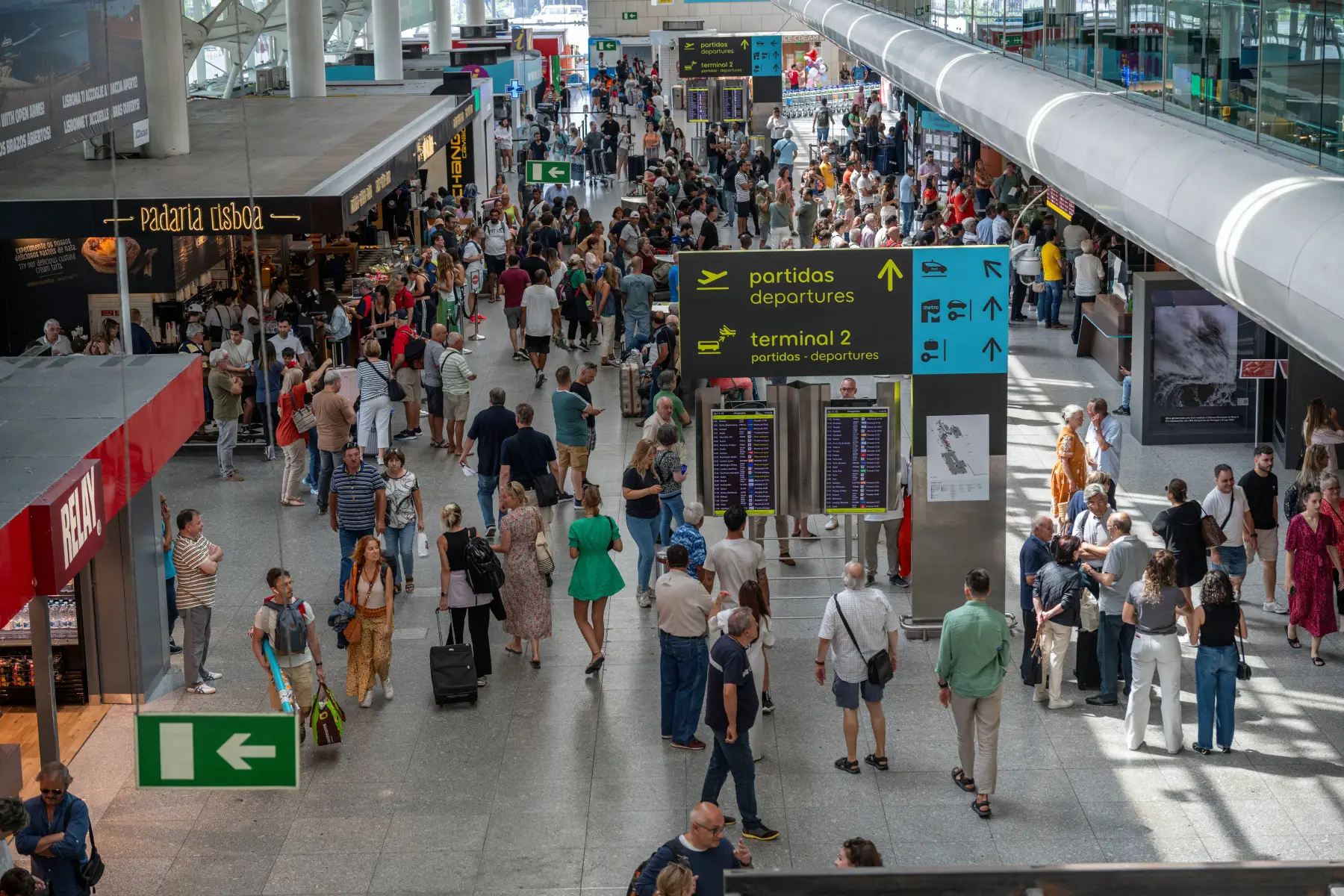
Nationals of countries who share Visa Facilitation Agreements with the EU can pay a reduced fee of €35. These are Albania, Armenia, Azerbaijan, Bosnia, Georgia, Macedonia, Moldova, Montenegro, Serbia, and Ukraine. In addition, nationals of Cabo Verde pay €67.75 (€33.75 for 12 to 18-year-olds).
Are there any visa exemptions?
The following are exempt from Schengen Visa fees:
- Children under six
- Students, postgraduates, and teachers who are traveling for educational or training purposes
- Researchers traveling for scientific purposes
- Representatives of non-profit organizations aged under 25 participating in events organized by non-profit organizations
- Family members of EU/EFTA nationals and UK nationals under the Withdrawal Agreement
You can download a Schengen visa form in your preferred language from the Portuguese Ministry of Foreign Affairs (Ministério dos Negócios Estrangeiros – MNE) website.
What types of Short Stay visas are available?
The various Short Stay visas offered in Portugal are outlined below.
General Short Stay visa – requirements and how to apply
The general Short Stay visa allows you to remain in Portugal for 90 days for general purposes such as tourism, family visits, and short-term work or business. You will need to submit the following along with your application form:
- Valid ID such as a passport
- Passport photo
- Proof of health insurance
- Proof that you can financially support yourself for the duration of your stay
- Return ticket reservation
- Details of where you will be staying, for example, hotel reservation
- Evidence of the nature of your visit if applicable, for example, business conference details or proof of family members living in Portugal
Seasonal Work visa
This is a visa for work of a seasonal nature in one of the following sectors:
- Agriculture, forestry, hunting, or fishing
- Hospitality
- Food, liquor, or tobacco industries
- Retail
- Construction
- Land transport
Seasonal Work in Portugal visa requirements
You will need to provide the following documents along with your application form:
- Valid ID
- Passport photo
- Valid health insurance
- Proof that you can financially support yourself for the duration of your stay
- Return ticket reservation
- Work contract or work offer for seasonal work with a Portuguese employer
- Compliance with national legal requirements in the case of regulated professions
- Accommodation details
Airport Transit visa
This is granted to allow transit within the international area of an airport, from one flight to another, without entering the Schengen Area. This visa is mandatory for all passengers that change flights in a Schengen country airport unless they are exempt from requiring an entry Portuguese visa.
Requirements for the Portuguese transit visa
You will need to submit the following along with your application form:
- Valid ID
- Passport photo
- Entry visa for the destination country, if applicable
- Proof of means of subsistence for the duration of your stay in the destination country (bank statements, work contract)
- Return ticket reservation
What is a Temporary Stay visa in Portugal?
Temporary Stay visas allow you to stay in Portugal for up to one year. They permit multiple entries, meaning that you can leave the country for short periods.
All third-country nationals staying in Portugal for more than 90 days and less than a year need a Temporary Stay visa, except:
- Family members (spouse, dependent children, adopted children, parents, or dependent minor siblings)
- Portuguese residents
- Other EU/EFTA nationals
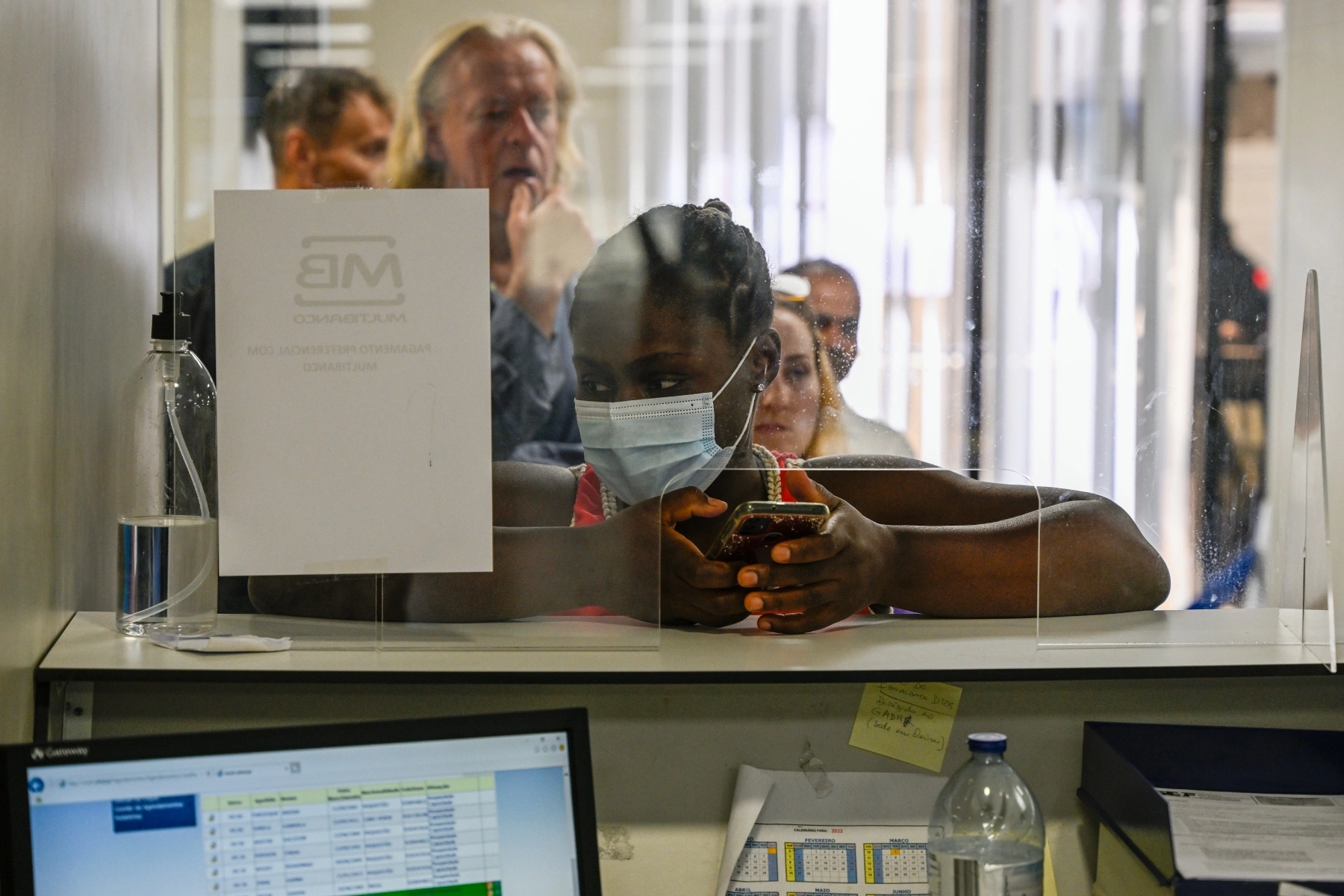
You should make your visa application at the Portuguese embassy or consulate in your home country. The deadline for Portugal immigration authorities to make decisions on temporary visa applications is 30 days before the travel date, however, you can make an application several months in advance.
You can find relevant application forms on the Portuguese Ministry of Foreign Affairs website.
The fee for the Temporary Stay visa in Portugal is €90. The following are exempt from paying:
- Children who are descendent family members of Portuguese residents or EU/EFTA residents living in Portugal
- Those with a study scholarship granted by Portugal
- Highly qualified researchers carrying out research activity
- Patients and accompanying persons traveling under Cooperation Agreements in the Field of Health with Portugal
Temporary Stay visa requirements for Portugal
You will need to provide the following documents for all Temporary Stay visas in Portugal, along with the completed application form:
- Passport or other valid ID
- Two passport photos
- Return travel ticket details
- Valid health insurance
- Access to criminal records by the Portugal immigration authorities
- Proof of accommodation
- Proof that you can support yourself financially for the duration of your stay
What types of Temporary Stay visas are available?
Below are the different types of Portuguese Temporary Stay visas available.
Temporary work visa
Apply for this visa for any employment in Portugal lasting between 90 days and one year. The Portuguese work visa can be obtained for various purposes, including:
- Long-term seasonal work
- Self-employed or freelance work
- Scientific or academic work
- Amateur sports activity
- Any other skilled work
Additional documentation required includes:
- Work contract or service agreement
- Letter from an academic or research institution detailing the nature of work, if the visa is to carry out scientific or academic research
- Compliance with national legal requirements in the case of regulated professions
- Document issued by sports federation or association, if the visa is for amateur sports purposes
Job Seeker Visa
Unlike most other countries, Portugal allows you to move there to look for work. Non-EU nationals can acquire a Job Seeker Visa, which lets you live in the country for 120 days while searching for a job. You can renew it for an additional 60 days.
You must prove that you have financial means available to support yourself during the job search, and register with the Portuguese Institute for Employment and Vocational Training (Instituto do Emprego e Formação Profissional – IEFP).
Study visa
This visa is for any study program in Portugal lasting between 90 days and one year. This includes secondary, graduate, or postgraduate education.
In addition to general documentation, you will need to provide confirmation that you have been accepted onto a study course at an accredited Portuguese educational institution along with proof that the course lasts no longer than one year.
Professional training, internship, or volunteering visa
This is a temporary visa for any form of professional training, unpaid internship, or volunteering for a charity or NGO based in Portugal.
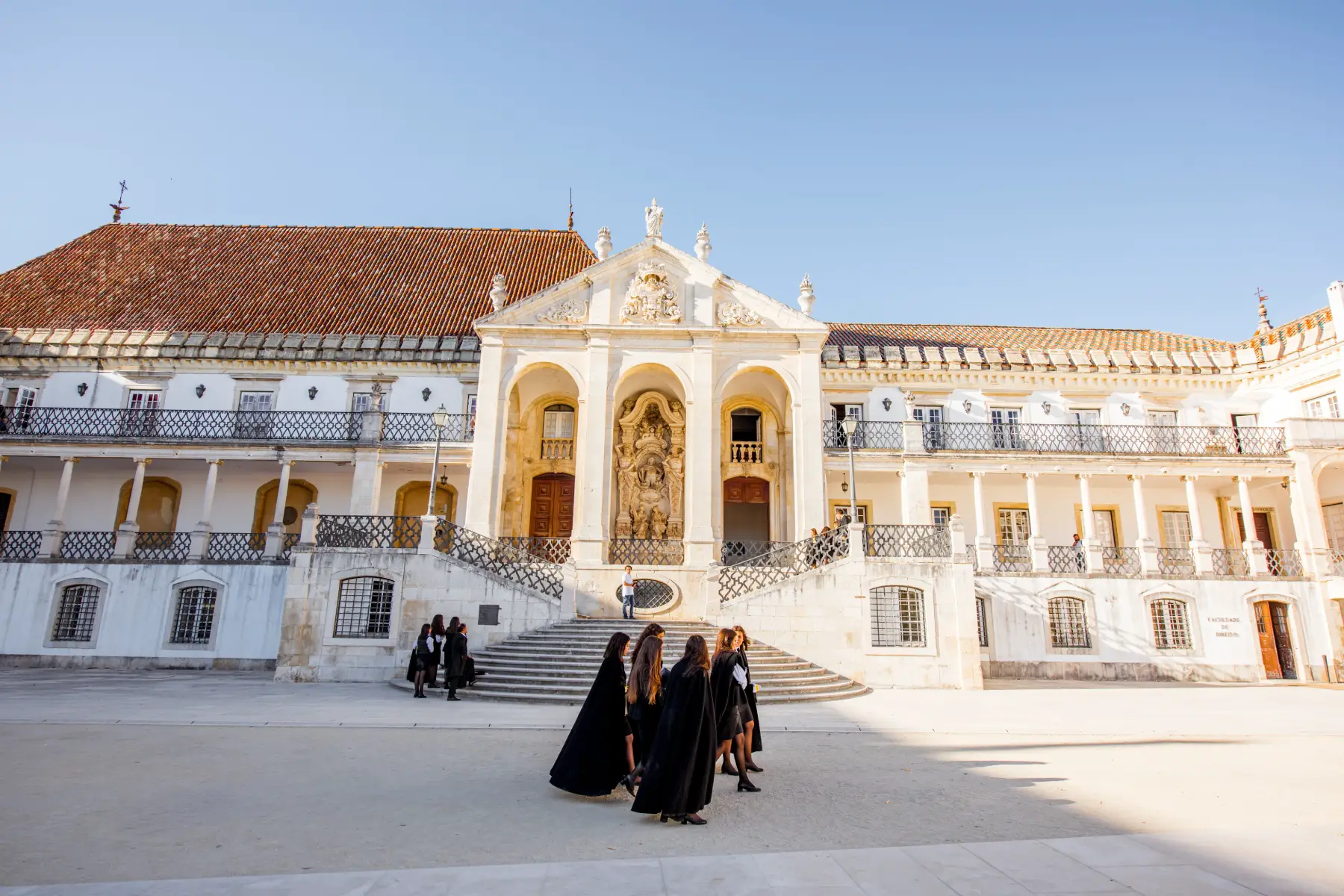
In addition to the general documentation, you will need to submit the necessary proof that you are undertaking these activities for a period between 3–12 months. This could be in the form of details of training courses or a letter from the organization that you will be carrying out your placement with.
Medical treatment visa
This can be for your own medical treatment within the Portuguese health service, or to accompany a family member undergoing health treatment. You will need to provide:
- Medical report for the person undergoing treatment, for example from a doctor or specialist in the patient’s home country
- Proof of treatment to be performed by medical service in Portugal
- Proof of relationship in cases of accompanying family members
Youth Mobility visa
This is a visa available to people from nine countries that allows stays of up to 12 months for purposes such as:
- Study
- Training
- Internships
- Volunteering
- Cultural exchange
It is available for individuals aged 18 to 30 (upper age limit increased to 35 for Canada, 31 for Australia and Peru, no upper age limit for the United States).
Exact conditions and criteria vary between individual countries. Many agreements stipulate that participants can do a maximum of six months of paid work.
Self Support visa
The Self Support visa is for either working-age or retired individuals who can prove that they can support themselves financially for a 12-month stay in Portugal.
You will need to provide evidence such as bank statements or proof of savings. However, this visa is normally only granted in exceptional circumstances and you usually have to give details for your reason for wanting to live in Portugal for a temporary period.
Religious purposes visa
For religious training or studies with a recognized institution or congregation. You will need to provide proof of activity, such as a letter from the religious organization.
What are Long Stay Portuguese visas?
Also known as the Residency Visa, this is a Portuguese national visa for stays longer than one year. With this visa, you will need to apply for a Portuguese residency permit from the Portugal immigration agency AIMA.
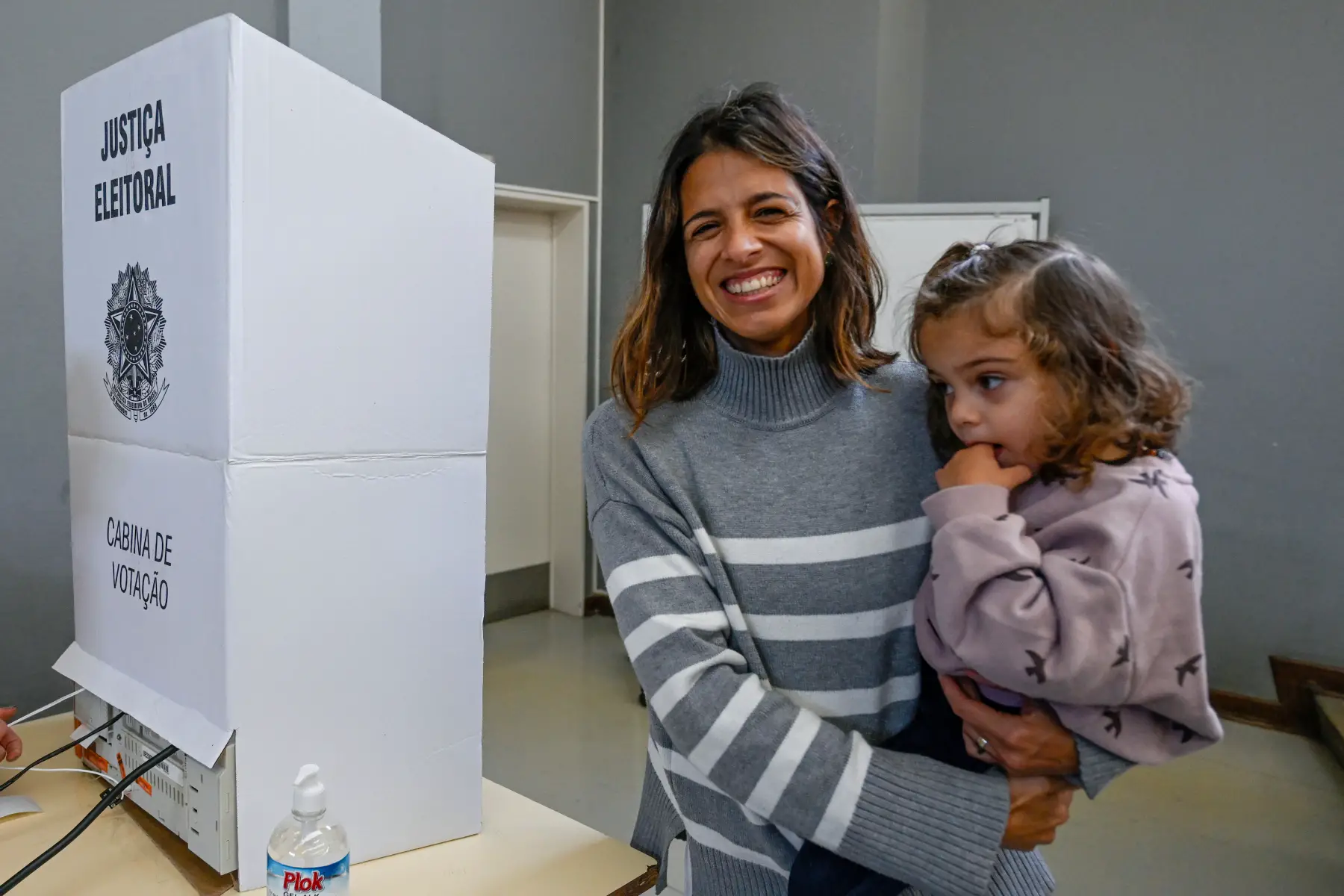
Information on who needs this visa and where to apply is the same as for the Temporary Stay visa. The application form (PDF) is also the same. However, the deadline for making an application is different (60 days rather than 30 days), and it costs more (€90). The exemption categories are the same as for the Temporary Stay visa.
e-residence
Skip the queues and let e-residence take care of your moving admin. Use their online services for your tax numbers, bank account, social security, company creation, apostille, and more in your new country – all without having to fly out for appointments. Cross off your top moving priorities today with e-residence.
Long Stay visa in Portugal: requirements
For all Portuguese residency visa applications, you will need to provide (along with the completed application form):
- Passport or valid ID
- Two passport photos
- Proof of medical insurance
- Access to criminal records by the Portugal immigration authorities
- Proof of accommodation
- Proof that you can support yourself financially for the duration of your stay
If you’re looking for help with your long-stay visa for Portugal, reach out to the experts at moviinn. They can help you with every step of the process, including deciding on the best visa type.
What types of Long Stay visas are available?
Below is additional information on the specific types of Long Stay residence visas on offer.
Work visa – D1
This is for any long-term or permanent work placement for a period longer than one year.
Additional documentation you need to provide includes:
- Work contract or service agreement
- Letter from academic or research institution detailing the nature of work, if the visa is to carry out scientific or academic research
- Compliance with national legal requirements in the case of regulated professions
- Document issued by sports federation or association, if the visa is for amateur sports purposes
Study visa – D4
This is granted for a period of study that lasts longer than a year at all educational levels from secondary school upwards.
You will need to provide proof of acceptance onto a course or into the school, such as a formal letter from an accredited institution. For higher-level academic courses, you may also need to show evidence that you meet the admissions criteria.
Professional training, internship, or volunteering visa – D4
This visa covers any form of professional training, unpaid internship, or volunteering for a charity or NGO based in Portugal that lasts longer than 12 months.
In addition to general requirements, you will need to provide full details of your placement including a letter of acceptance and the duration of the program.
Family reunion visa – D6
Family members of non-EU/EFTA residents in Portugal will need to apply for a family reunion visa if they are also from outside the EU.

This visa is available for the following relatives:
- Spouses and legally recognized partners
- Dependent children, including adopted children and children of the spouse/partner
- Dependent parents, including parents of the spouse
- Any dependent minor siblings
You will need to provide:
- Notification of family reunion authorization by the Portugal Immigration Service
- Proof of family relationship, such as marriage or birth certificate
Retirement visa – D7
This Long Stay visa is for anyone who is able to support themselves financially long-term without working or using Portuguese welfare services. This can be people of working or retirement age, or people taking up long-term religious placements where accommodation is provided.
To get this visa, you will need to show evidence of earnings or savings that demonstrate that you can support yourself long-term in Portugal. For long-term religious stays, you will need to provide a letter or certificate from the religious organization or congregation.
Digital Nomad Visa – DR
The Digital Nomad Visa is a recent development in Portugal, and it is quite similar to the retirement visa. However, instead of showing proof of passive income, you must verify your active income and an employment contract from a foreign employer. Your monthly earnings must be at least four times the Portuguese minimum wage – so €3280 per month as of September 2024. If you need advice about procuring this type of visa, it’s worth contacting an advisor such as those at Pearls of Portugal.
Golden visa scheme – D9
The Golden Visa is Portuguese visa program that is designed to attract foreign investment into Portugal. The Portuguese golden visa scheme speeds up the process for foreign investors from non-EU countries if they invest in Portugal to a certain value.
Provided they meet the conditions under this scheme, non-EU citizens will receive a Portuguese residence permit and can later apply for full Portuguese citizenship.
Changes to the Golden Visa laws in October 2023 mean that real estate investments no longer qualify for residency. However, in 2024, the Portuguese government announced plans to allow investors to gain residency through social investment.
Asylum seekers and refugees in Portugal
Portugal allows asylum applications and grants refugee status to persecuted individuals fleeing other countries, in accordance with EU recognition of the 1951 Geneva Convention on the protection of refugees.
According to the European Council Asylum Database, there were 2,992 asylum applications in Portugal in 2023. Of these, 72% of applicants were granted refugee status or emergency protection.
Anyone can make an asylum application in Portugal. You should apply at the AIMA or with any Portuguese police authority. Your fingerprints and photo will be taken to submit along with your application.
If you apply for asylum at the Portuguese border on entry, you will stay at a border accommodation center while the Portugal immigration authorities make a preliminary decision on your application. This can take up to seven days.
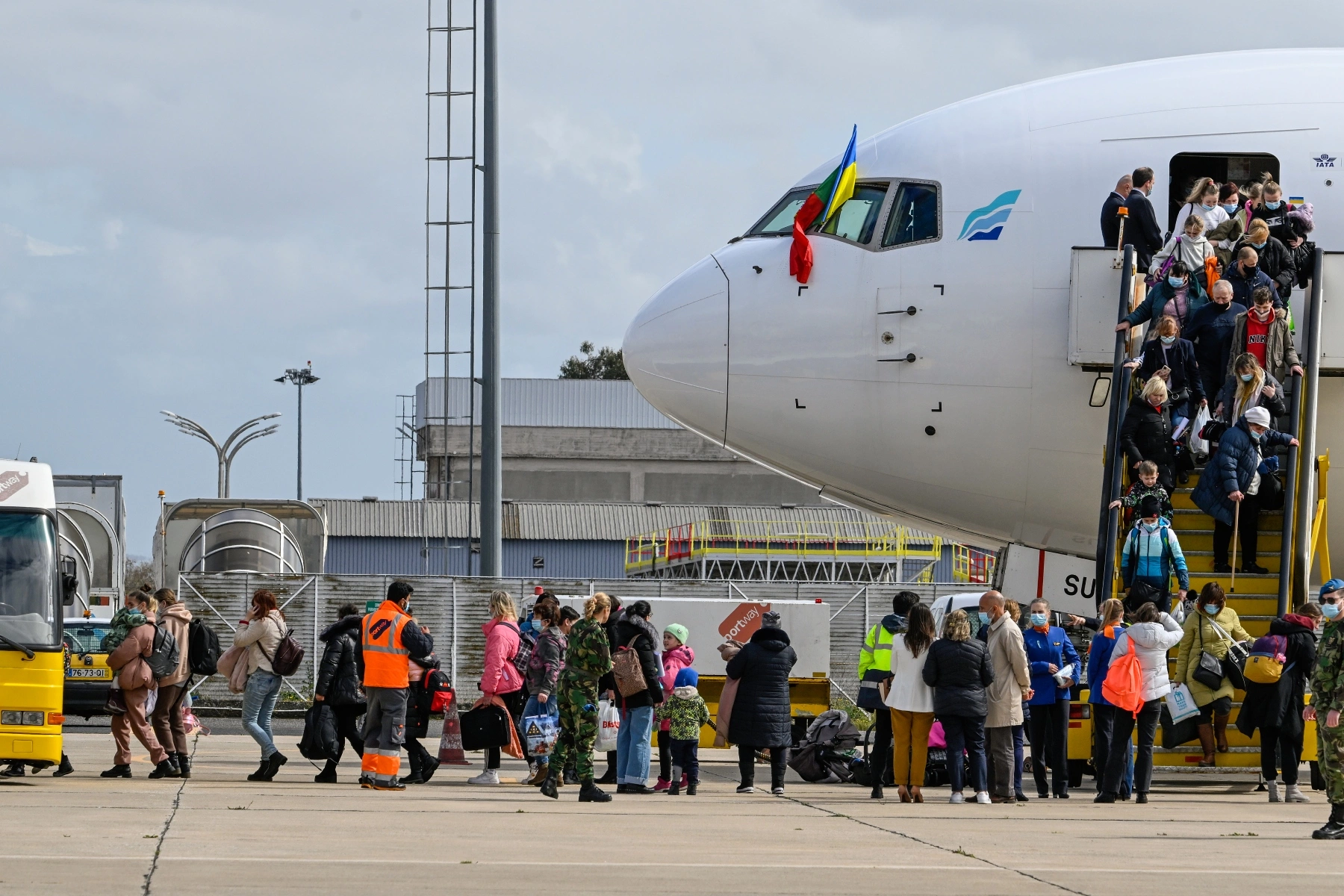
If the application is refused at this point, you will be removed to your home country but will have four days to appeal the decision.
If you make an asylum application inside Portugal, you will be sent to an accommodation center and interviewed in due course by AIMA staff, with an interpreter present if necessary. They will make a preliminary decision on your application.
Positive decisions mean that applicants get a six-month provisional residence permit, during which time they can work, study, and access social support. This can be extended to nine months in more complex situations.
However, negative decisions mean that applicants must leave Portugal within 20 days. You can lodge an appeal within 15 days.
Residency and citizenship in Portugal
Anyone traveling to Portugal from outside the EU/EFTA and staying for longer than three months must apply for a residence permit from the AIMA. Initial Portuguese residence permits are temporary permits valid for one year but are renewable. EU/EFTA citizens staying for longer than three months don’t need a residence permit but do need to register with the AIMA.
After five continuous years of living in Portugal, you can apply for permanent residence. You can also apply for Portuguese citizenship after five years. Citizenship applications can be made earlier in certain circumstances, for example, if you are married to a Portuguese citizen.
UK residents in Portugal after Brexit
If you are a UK resident who was living in Portugal after the end of the Brexit transition period on 31 December 2020 and intend to stay in Portugal, you need to exchange your residence document for a new Portuguese residence permit with the AIMA as per the Withdrawal Agreement.
However, as ever with regards to Brexit, be sure you are aware of the latest goings-on and decisions made by the EU and UK, as well as the Portuguese government. This is essential to ensure you can live and work legally in the country.
Arriving in Portugal
You won’t need to register your stay in Portugal if you are in the country for less than three months. However, you will need to apply for either a Registration Certificate (if from EU/EFTA) or a residence permit (if from outside the EU/EFTA) from the AIMA within four months of your arrival if you stay longer than 90 days.
Other things to consider once arriving to live in Portugal are:
- Registering for Portuguese healthcare
- Opening a Portuguese bank account
- Applying for a NIF number
- Setting up utilities and telecommunications accounts
Online services such as Anchorless and Bordr can help you save time and energy when opening a bank account and applying for an NIF number.
Portugal immigration: appeals and complaints
If you wish to appeal against a decision by the Portugal immigration authorities, you can:
- Contact the AIMA within 15 days of the decision, outlining the reasons why you are unhappy with the decision
- Lodge an appeal with the Ministry of Foreign Affairs within three months of the decision
- Take the case to a Portuguese court within three months of the decision to try and get it legally overturned
These options are not mutually exclusive. This means you can, for example, complain to the AIMA while lodging an appeal with the Ministry of Foreign Affairs at the same time.
Useful resources
- Agency for Integration, Migrations, and Asylum (AIMA) – official government website with information on immigration, border controls, visas, and permits
- Ministry of Foreign Affairs – complete directory of the different available Portuguese visas available
